Unfinished business
Thursday, 30.01.2014.
13:58

Unfinished business
Few politicians in the EU understand Serbia and the Balkans like Carl Bildt. He was co-chairman of the Dayton Peace Conference in 1995 and spent many of the following years working in the region. So it’s no surprise that the current Swedish Foreign Minister retains an interest in the EU ambitions and future of Serbia and Bosnia-HerzegovinaCarl Bildt, the former Swedish Prime Minister, EU/UN Special Envoy to the Balkans and High Representative for Bosnia and Herzegovina, has had a busy week. There has been the EU Foreign Affairs Council, the Syria peace conference, the World Economic Forum Annual Meeting in Davos, Switzerland and the continued protests and destabilisation in Ukraine. All of which makes it remarkable that Sweden’s current Minister for Foreign Affairs found the time to grant an exclusive interview with CorD about Serbia’s EU ambitions, the Kosovo normalisation process, the ongoing political stalemate in Bosnia and Herzegovina, EU threats to curb the visa-free travel regime for Serbian citizens, the World War I centenary and more.
Bildt unsurprisingly remains a passionate advocate of the EU and the benefits that come with membership. He is also quick to praise the progress made in the Balkans, in the last year especially, and reinforces the fact that ultimate sovereignty and responsibility for Serbia’s future remains with Serbia. At the same time, he speaks in a to-the-point manner about the unresolved challenges facing the country and its neighbours. As he puts it, when it comes to Serbia’s EU ambitions, the speed of EU-ready reform is important, but just as important is that the process is “thorough, transparent and driven by a national consensus”.
You have been quoted recently as saying that Europe still had some “unfinished business” in the Balkans. Were you referring only to the EU accession process or do you think that certain territorial decisions from the 1990s failed to stand the test of time?
- The enlargement policy of the European Union has proven to be a success story and a source of peace, stability and prosperity. This is a door that remains open. The general inclusiveness of the EU is enshrined in the treaties through Article 49 and the specific commitment towards the Balkans was affirmed more than 10 years ago with the Thessaloniki Agenda. In that respect, Europe most certainly has unfinished business in the Balkans. We still have countries that remain in the EU waiting room. But it should also be noted that we have seen remarkable progress of enlargement in the last year, with membership for Croatia and the opening of negotiations for Serbia serving as two examples.
Serbian officials hope that Serbia could become an EU member by 2020. Do you think this is realistic?
- With such a comprehensive process it is difficult to point out an exact point in time – but if Serbia remains committed, we will see continued results. I think that we have seen strong commitment during the last year, and that is what is required for a speedy progress. However, speed is not the only important factor; it is also important that the process is thorough, transparent and driven by a national consensus.
Both Belgrade and Priština have called the Brussels Agreement a great political achievement. However, its implementation has been anything but smooth. Kosovska Mitrovica mayor-elect Krstimir Pantić withdrew from his appointment, suggesting that Priština had been imposing certain aspects that were nowhere to be found in the agreement. Do you think this situation is more of a challenge for the EU than it is for Belgrade and Priština?
- The steps taken are no doubt an extraordinary achievement. The Belgrade-Priština dialogue is a showcase for solving disputes in this part of the world and beyond. But as with every difficult process we must also expect and be prepared for friction and tough decisions – there will be bumps on the road. However, the courage and political leadership we have witnessed are unprecedented. I am therefore confident that we will see more progress. Thus continued success will be important, for Sweden, for the EU, but most of all for the peoples of Kosovo and Serbia.
The possibility of reintroducing EU visas for Balkan countries is being spoken of once more. Is this possibility a whip that is being used to bring the Serbian authorities to submission? Do people in the EU think there is a real threat of fake asylum seekers coming from Serbia?
- It is true that the EU suspension mechanism was entered into effect to ensure that there is no abuse. It would, however, be a mistake to believe it is directed towards a certain region or country such as the Balkans or Serbia. The rules are applied equally for all countries – present and future – that benefit from visa-free travel and are to be used only as a measure of last resort. At the same time, the problem of unfounded asylum requests must be resolved. The flow of false asylum seekers causes severe difficulties in the asylum processes of the EU countries that are most affected.
You have been quoted as saying you did not believe the EU would explicitly ask Belgrade to recognise Kosovo’s independence. Still, many European MPs have been suggesting that Serbia normalising its relations with Kosovo, i.e. recognising Kosovo’s independence, would be the last step in a long negotiation process between Serbia and the EU. Is the choice to leave the most difficult negotiation topics until last part of the EU’s political strategy, and how much is it a validation of the fact that Europeans don’t all see eye-to-eye about this issue?
- The EU has not asked Belgrade to recognise Kosovo’s independence. Let us turn to what has actually been agreed. In December the negotiation framework of the EU was agreed upon by the member states. It explicitly states that by the end of negotiations there should be a “comprehensive normalisation of relations” between Serbia and Kosovo. I do not see how the EU collectively can ask Serbia to recognise Kosovo when five EU countries have not done so. What we have asked and will continue to ask is that relations are normalised to the benefit of all people concerned.
Your comments about the Hague Tribunal’s rulings have been relatively cautious. You have even said that the Tribunal was taking the Balkans too far back into the past instead of working to reconcile the region’s nations. Serbian public opinion is that the Tribunal is far from being a court of justice, and that its main role is to perpetuate the stereotypical opinions people have of the Serbs as the only people to blame for the wars in the former Yugoslavia. Has your opinion changed since then?
- Politicians should always be careful when it comes to commenting on specific court rulings. Indeed, a cornerstone of our societies, founded on the rule of law, is the independence of the judiciary. My general view of the Hague Tribunal is that it has been vital to the process of helping the region to reconcile with its difficult past and thus paved the way for moving on and moving forward.
Do you have a rational explanation as to why Vojislav Šešelj has been waiting for over a decade to be sentenced?
- I have full confidence in the handling of the case by the Hague Tribunal.
Does Serbian EU membership entail the country also joining NATO? Is Serbia’s choice to remain neutral an aggravating circumstance, given the country is surrounded by NATO members that are also part of the EU?
- On the contrary. Sweden together with Austria, Ireland and Finland are all examples of countries that are members of the European Union and only – just as Serbia – partners but not members of NATO.
Certain European officials have been vocal in branding Serbia a ‘Trojan horse’ used by China to break into the European market. Others are bothered by the Russian-Serbian agreement for the construction of the South Stream gas pipeline. Why is this agreement a problem in the case of Serbia but not in the case of an EU member such as Bulgaria?
- It is not necessarily a problem. But ensuring energy sufficiency could always become a security political issue. Since the pipeline will also be constructed on EU territory, the European Commission has stated that contracts related to it must comply with EU regulations.
You are very familiar with the situation in the region. Bosnia and Herzegovina has proven to be a dysfunctional creation, a place where it seems like the war ended only yesterday and animosity between the country’s peoples and entities are as present as ever. Sarajevo is advocating changing the Dayton Agreement while Republika Srpska dreams of independence. Do you think the EU has failed in the case of Bosnia, and what is the country’s future in realistic terms?
- The unfortunate stalemate of Bosnia and Herzegovina is a result of the inability of the political leadership to address their country’s urgent need for reforms. This year an election will be held, hopefully with an outcome that gives the country a government that is ready to take the steps needed for the SAA-agreement to come into force and able to hand in a credible membership application to the EU.
This year Europe is marking the centenary of World War I. Certain Western historians have been quick to revise established historical facts in their publications; there is a new claim that there would have been no war if Gavrilo Princip hadn’t assassinated Archduke Ferdinand in Sarajevo. The average Serbian citizen sees this is as yet another example of Europe being unjust towards Serbia and the country again being portrayed as the usual suspect for everything. What do you think of this?
- There is no historically established truth that holds one actor or individual as responsible for the outbreak of World War I, nor is it likely that one will be identified during this year. However, for two reasons, I believe it is justified to criticise the actions of political leaders in the capitals of Europe at the time. Firstly because they did not exhaust all possibilities to resolve the conflicts peacefully when the outbreak was on their doorstep. Secondly, they lacked the ability to imagine the unprecedented suffering that would be unleashed with an all-out European war. There are lessons to be learned and hopefully the centenary can shed light on some of those.
Apart from open war wounds, the whole region is also suffering due to poverty. Regional economies are so weak that even the EU’s staunchest proponents believe Western Balkan states would be treated as second class and a source of raw materials and cheap labour when (or if) they become EU members. How should Brussels respond to these claims?
- You are right in that the Balkans, just as Europe as a whole, is going through a rough patch. It is also true that with membership and access to the market follows initial difficulties in adapting to the new environment. Exactly for that reason I welcome the renewed focus of the Commission – within the framework of enlargement – on economic reform early on in the process of negotiations. That way new members will have better conditions for an easier transition.
However, just as we should not turn a blind eye to the initial difficulties of acceding, we must not forget the many benefits and opportunities that come with membership. Look at the Eastern Enlargement – celebrating 10 years now in May – and the outcome that has been made possible through hard work, openness and a readiness to change.
You have met many Serbian politicians. Which of them has impressed you most and why?
- In my opinion, several Serbian politicians from different political camps, since the fall of Milošević up until the opening of negotiations for EU membership, have shown impressive courage and commitment.
Serbia and other Western Balkan countries are waiting to see who will replace Catherine Ashton as the EU’s High Representative for Foreign Affairs and Security Policy, and even wondering if you are a contender for the role. Many in Serbia think you would be a good choice given your familiarity with the situation in this part of Europe. What is your response to this?
- I am convinced that regardless of who is appointed as High Representative, the Western Balkans will remain a prioritised region. The credibility of the EU presupposes being able to ensure security and stability in its own neighbourhood.












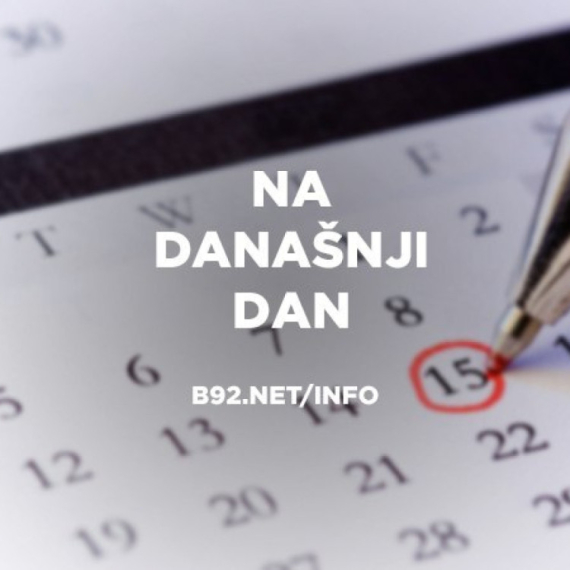
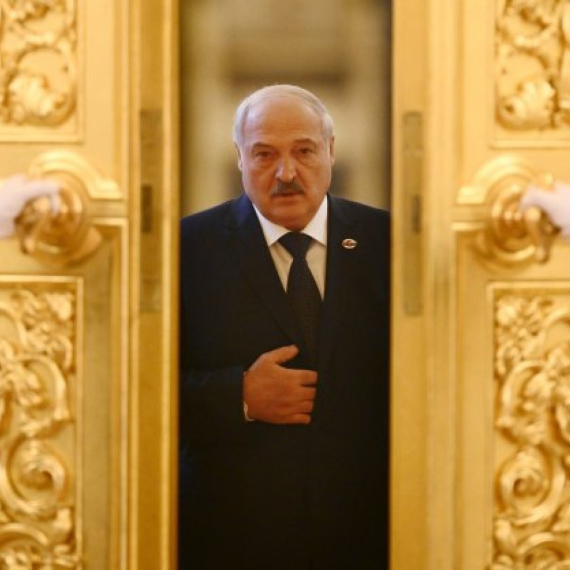






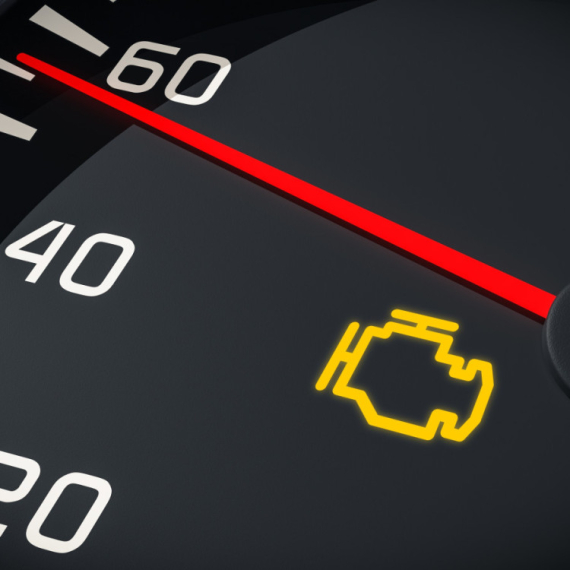

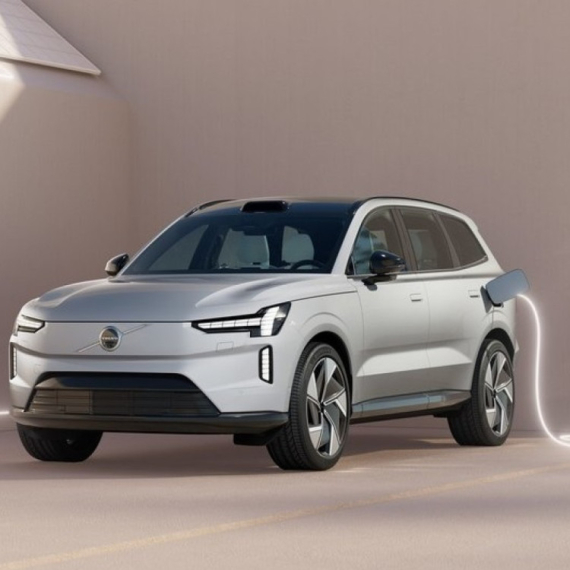






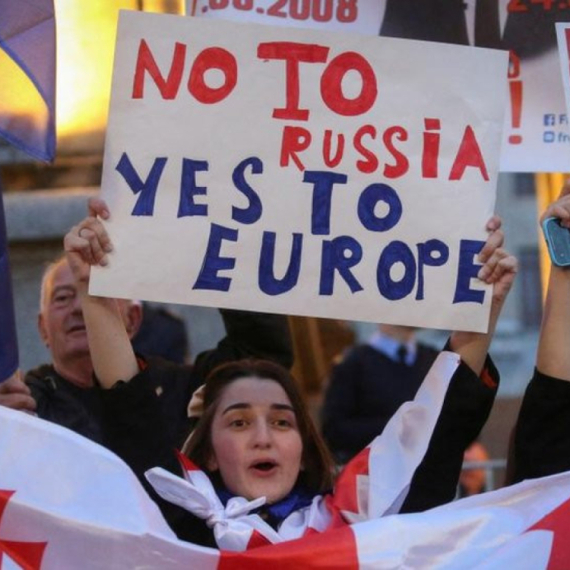

Komentari 2
Pogledaj komentare